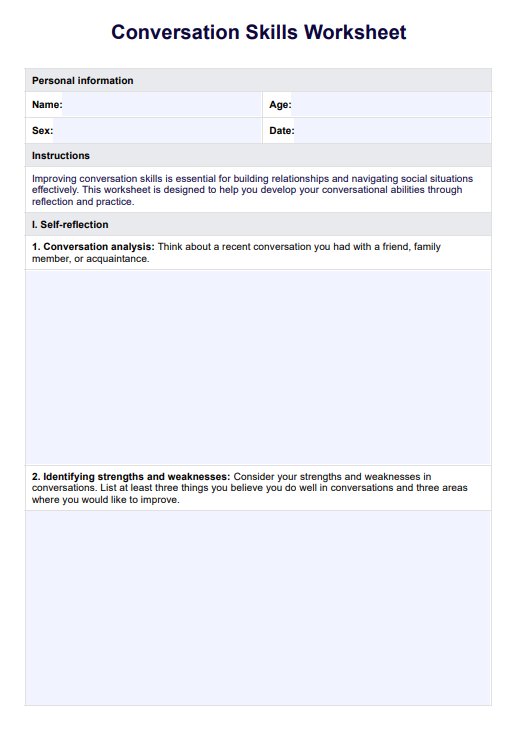Improvement timelines vary, but consistent practice and application of skills from the worksheets can lead to noticeable improvements in as little as a few weeks. However, long-term development is encouraged for sustained progress.

Conversation Skills Worksheet
Level up conversational abilities with our engaging Conversation Skills Worksheet. Practical exercises and goal-setting included. Download for free today!
Use Template
Conversation Skills Worksheet Template
Commonly asked questions
While primarily focused on face-to-face communication, the activities may help individuals incorporate reflections to improve written communication, including composing clear and engaging text messages.
It can vary based on individual needs. However, most sessions can be completed within 30 minutes to an hour.
EHR and practice management software
Get started for free
*No credit card required
Free
$0/usd
Unlimited clients
Telehealth
1GB of storage
Client portal text
Automated billing and online payments











